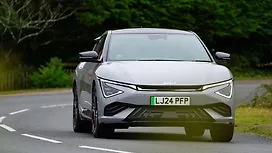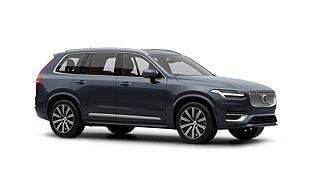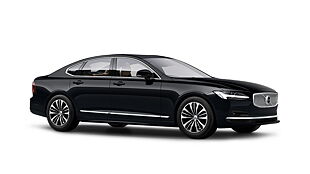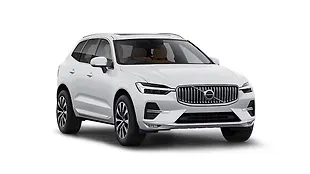Introduction

The new C-Class which was launched just last year is a very impressive product. Apart from boasting a design which made it look like a mini S-Class, the cabin with its design finesse and superior quality swept the floor from under its competition. But where it lacked was in the engine department especially in the diesel guise. Initially the ‘C’ was available in just the 220d form which meant making a modest 170bhp . Although it never felt underpowered it did feel wanting as compared to the much more powerful competition. After a long wait though you can buy your C-Class with a C250d badge and with more than 200 horses under the hood. This should mean the C-Class will have an easy win over its competition? If only it was so easy. Its competition haven't been standing still and have brought major updates both in terms of looks and engine to take on the mighty Merc. The BMW 320d might look similar despite the facelift but it has got a brand-new diesel engine under its long hood which not only has boosted power but is more refined and much more efficient than before. The improved looks and interior's makes it better than ever before. Then there is the oldest car in this group the Volvo S60. Like the BMW even the S60 went under the knife recently and Volvo also plonked in a brand new 2.0-litre motor under the hood. Apart from retaining its strengths like the tough build and sporty appearance, the S60 has also gained more equipment, even better looks and a motor which has more power, efficiency and refinement than before.
Does the Mercedes dominate its competition? Or is there a surprise winner in store?
Face Value and Comfort

All three cars have their own charm as far as looks are concerned. The C-Class looks elegant thanks to its rounded edges, sculpted head and tail lamps and even the aggressive grille blends in well with the rest of the car. The Volvo S60 on the other hand, is the polar opposite and it looks young and aggressive. The pointy nose with the signature Volvo grille looks really sporty and the pronounced shoulder creases gives it great stance and the distinctive boomerang shaped tail lamps look fantastic. The BMW seems content with finding middle ground and the looks are neither as sporty as the S60 nor as rounded as the C250. It looks sporty enough thanks to the low nose, swollen kidney grille and chiseled bumper. In profile the 320d’s rising waistline gives it a purposeful stance and the large M wheels look spectacular. From the rear the 3 Series looks a bit generic as compared to the rest of the design.

On the inside it’s the C250d that completely outshines the other two. The layered dash looks really attractive and the round air-vents are beautifully finished. The quality levels are just outstanding and despite spending a lot of time with the car we couldn’t find one sore point. Dash design was never the 3 Series’s strong suit and despite improvements it still isn’t. As compared to the Merc the 320d’s dashboard feels at least a generation old. On a positive note the beautifully crafted M steering does give the cabin a sporty appeal and the modern i-Drive system was just unparalleled in this test as far as ease
of use is concerned. The Volvo S60 is the oldest car here and it shows. The dash design looks utilitarian and the sea of buttons on the floating centre console looks out of place on a car that costs more than Rs 40 lakh. The digital dials though work pretty well and give the otherwise simple cabin a sense of sophistication.

In terms of comfort the Volvo S60 with the R Design front seats are the snuggest and the most comfortable. The BMW 320d with adjustable underthigh support aren’t far behind and the Mercedes is good too but lacks the lateral support of the other two. At the rear the 3 Series is the clear winner. Space is good, you sit at a good height, the backrest is well contoured and the generous thigh support makes the BMW a great chauffer driven car too. The Volvo S60 has a comfortable bench too but it has the least amount of space and the large front seats, high window-line and black upholstery makes the ambiance claustrophobic. The C250d has the most amount of kneeroom at the rear, but you sit quite low, the seat squab is short and the swooping roofline means headroom is not great either.

All three cars are pretty evenly matched as far as practicality is concerned but the Volvo trumps the Germans as far as spare tyre accommodation goes. Where the S60 gets a neatly tucked in space saver, both in the 320d and the C250d it eats up the precious boot space which will be inconvenient on weekend trips. At least in the 3 Series you can think of leaving the spare tyre at home as it is shod with runflat tyres.
Behind the Wheel

The Mercedes C250d is powered by a 2.1-litre twin turbo diesel which puts out a very healthy 204bhp of power and a handy 500Nm of torque which makes it the most powerful in this test. Both the BMW 320d and the Volvo S60 D4 have got brand new 2.0 litre engines. While the BMW is more powerful at 188bhp 400Nm the Volvo isn’t far behind at 181bhp and 400Nm. The Mercedes engine feels the most refined here and there is surplus of power from the word go. Be it crawling at low speeds or overtaking fast moving traffic on two lane roads, the massive 500Nm of pulling power comes at a low 1600rpm and power is delivered in a linear manner. The quick shifting 9-speed torque converter gearbox makes the most of the power available, which makes the C250 a genuinely relaxing car to drive.

The BMW 320d might be down on power as compared to the Merc but thanks to it being the lightest here it actually clocked the quickest acceleration times of the three. The new 2.0-litre motor is even freer revving than before and the smooth power delivery fools you into thinking that you are going much slower than you actually are. The all-aluminium motor is much more refined than the older engine too but still you can hear some clatter at idle and it gets quite vocal near its 5000rpm redline. The new aluminium motor on the Volvo though is even louder and there is a distinct drone as you go past 2500rpm. But this 181bhp motor really excels in terms of response. There is abundance pulling power from the get go and the motor has the most immediate throttle response of the three. The sudden power surge around 2000rpm also makes the S60 trickier to drive smoothly in bumper to bumper traffic and Volvo has clearly chosen quick response over linearity. The power available helps the 8-speed gearbox though which doesn’t feel as immediate as the Germans.

In terms of flat-out acceleration the BMW turned out to be quickest with a 0-100kmph time of 7.14 seconds. The C250d was very close with a time of 7.34 seconds, with the Volvo finishing in third with 7.87 seconds. The BMW’s impressive times are also thanks to it having launch control to get every tenth out of the motor and Volvo’s slowest time is down to it being a front wheel drive and having minimum traction. Even when it came to in-gear acceleration there is nothing to separate the Germans with times of 4.85seconds and 4.87seconds for the BMW and Mercedes respectively. The Volvo too didn’t disappoint with it taking 5.08 seconds for the same run.

When it comes to handling, the BMW 320d has the best combination of ride and handling too. Though the BMW’s suspension is a bit thumpy at low speeds, body movement is well controlled and combined with the excellent seats it gives you the most comfortable experience. Over the past year Mercedes has improved the C-Class’s suspension and now it rides with maturity which the earlier car lacked. The marked improvement has also made the suspension the most silent in this group and though it still feels stiffer than the 320d, it never comes to the point of being uncomfortable. Volvo, moreover, has given the S60 the stiff dampers which converts into a low speed ride which is the noisiest and there is quite a bit of body movement too. As our car was the R-design variant the large rims and low profile tyres are also to blame here.

On the flip side, the Volvo has least amount of body roll through corners which gives you loads of confidence and the steering is quite precise too. But as it is a front-wheel- drive there is quite a bit of torque steer under hard acceleration and the front wheels struggles to change direction while on power, the tyres struggle to cope with directional forces and 181bhp going through them. The Mercedes on the contrary feels more balanced and the fluid action of the quick steering makes it great fun around corners at sedate speeds. But as soon as you push on soon as you go faster the C250’s shortcoming come to the fore. The chassis setup and the tyres are not quite matched to the quick steering and the C’ understeers heavily and excessive body roll makes it best for relaxed driving. When cornered hard the 320d rolls excessively too and shockingly the steering is the least favourable of the three. But once used to the slightly vague action the 3 Series is the most fun to drive. There is loads of traction from the wide runflat tyres and even when pushed hard, understeer is well controlled and in fact, the 320d is rather happy to wag its tail too. It just feels well sorted and there are no nasty surprises in store.

High in Gizmos Low on Fuel

All three cars are quite well equipped and they come standard with most features you will ever need. You get dual zone climate control, cooled storage compartment, cruise control, six CD changer, Sunroof (the C250d gets a panoramic one) and LED headlamps. The BMW 320d also gets equipment like 20GB of on-board storage, head-up display and launch control system which is part of the M-Sport variant. But it looses misses out onbasic features like front parking sensors and reversing camera which the other two have. The Mercedes comes across as the winner here as it doesn’t miss out on any major feature and it also gives you kit features like auto park and cornering lamps. In terms of their infotainment system the BMW i-Drive is by far the most intuitive to use with great graphics and ease of operation. The Comand system in the Mercedes looks modern too but can be a bit confusing to use. The Volvo’s system feels at least two generations old - the pixelated small screen looks out of place. All these cars are closely matched on the safety front with them offering 8-airbags, ESP and ABS as standard.

Thanks to the low kerb weight and efficient new engine, the BMW 320d is by far the most efficient car here. It returned 11.8kmpl in the city and 16.2kmpl on the highway. The Volvo came in second with figures of 11kmpl in the city and 15.8kmpl on the highway. The Merc then is most powerful and the heaviest here as a result it returned 10.5kmpl and 15.6kmpl in the city and highway respectively.

Verdict

3rd
Volvo S60 D4 R design
Final score: 400/600
Price: Rs 51.99 lakh, OTR, Mumbai
Despite being six years old the S60 still feels modern and holds its own against a segment that is dominated by Germans. It looks alluring, has a responsive new engine, is the most affordable and the rock solid build gives you the sense of security that the other two can only dream of. What lets it down though is the dated cabin, stiff ride and the cramped interiors.

2nd
Mercedes C250d
Final score: 415/600
Price: Rs 55.50 lakh, OTR, Mumbai
Although the Merc has finished second here it has just lost out by a mere four points. The C250d is just so desirable especially when you look at the exquisite quality and now with a potent motor under the hood it has got the go to match the show too. The fact that it is very well equipped and is priced similarly to a four year old BMW tilts the battle further in its favour. But apart from these strong points it mentioned this it struggles to usurp the BMW in other key areas.

1st
BMW 320d M-Sport
Final score: 419/600
Price: Rs 57.08 lakh, OTR, Mumbai
The BMW is the surprise winner here and the subtle improvements like the exterior and interior changes and the much improved new engine has shifted the battle in BMW’s favour. Yes, it has its vices like the ordinary looking cabin and the price. But in every other area the BMW manages to trounce the competition. It is the quickest, has the best ride and handling combo, is by far the most efficient, is the most comfortable and in the M-Sport variant it looks menacing too. The BMW has won this test but by the tiniest of margins.
Click here for features comparison
Click here for BMW 320d Roadtest
Click here for Mercedes C250d First Drive Review
Pictures by - Kapil Angane
Specification
| CAR NAME | Mercedes C-Class | BMW 3-Series | Volvo S60 |
| Variant | C250d | 320d M-Sport | D4 R-Design |
| ENGINE | |||
| Fuel | Diesel | Diesel | Diesel |
| Installation | Front, Longitudinal | Front, Longitudinal | Front, transverse |
| Displacement | 4 cyls, 2143cc | 4 cyls, 1995cc | 4 cyls, 1969cc |
| Bore/stroke | 91.2/85.2mm | 90.0/84.0mm | 82.0/93.2mm |
| Valve gear | 4 valves per cyl | 4 valves per cyl | 4 valves per cyl |
| Power | 204bhp at 3800rpm | 188bhp at 4000rpm | 179bhp at 4250rpm |
| Torque | 500Nm at 1600rpm | 400Nm at 1750-2500rpm | 400Nm at 1750-2500rpm |
| Power to weight | 123.6bhp per tonne | 117.7bhp per tonne | 108.35bhp per tonne |
| Torque to weight | 303Nm per tonne | 250.78Nm per tonne | 242.13Nm per tonne |
| Gearbox | 9-speed automatic | 8-speed automatic | 8-speed automatic |
| CHASSIS & BODY | |||
| Kerb weight | 1650kg | 1595kg | 1652kg |
| Tyres | 225/50 R17 | 225/45 R18 | 235/40 R18 |
| Spare | Space saver | Space saver | Space saver |
| STEERING | |||
| Type | Rack and pinion | Rack and pinion | Rack and pinion |
| Type of assist | Electric | Electric | Electric |
| Turning circle | 11.22m | 11.3m | 11.3m |
| BRAKES | |||
| Front | Discs | Discs | Discs |
| Rear | Discs | Discs | Discs |
| Anti-lock | Yes | Yes | Yes |
Test Data
| CAR NAME | Mercedes C-Class | BMW 3-Series | Volvo S60 |
| Variant | C250d | 320d M-Sport | D4 R-Design |
| PERFORMANCE & BRAKING | |||
| 0-20kph | 0.77s | 0.68s | 0.96s |
| 0-40kph | 1.77s | 1.66s | 2.06s |
| 0-60kph | 3.00s | 3.06s | 3.54s |
| 0-80kph | 4.88s | 4.80s | 5.49s |
| 0-100kph | 7.34s | 7.14s | 7.87s |
| 0-120kph | 10.28s | 10.41s | 10.98s |
| 20-80kph in 3rd gear | 4.87s | 4.85s | 5.08s |
| 40-100kph in 4th gear | 5.87s | 6.12s | 6.19s |
| 80-0kph | 23.79m | 22.66m | 24.45m |
| FUEL ECONOMY | |||
| City | 10.5kpl | 11.8kpl | 11kpl |
| Highway | 15.9kpl | 16.2kpl | 15.8kpl |
| Tank size | 66 litres | 60 litres | 67.5 litres |
| Range | 720km | 800km | 770km |
| INTERIOR MEASUREMENTS | |||
| Front | |||
| Legroom(Max/min) | 880/640mm | 880/640mm | 850/640mm |
| Headroom(Max/min) | 970/880mm | 990/920mm | 950/890mm |
| Shoulder room | 1300mm | 1410mm | 1370mm |
| Backrest height | 660mm | 620mm | 620mm |
| Rear | |||
| Legroom(Max/min) | 850/580mm | 880/640mm | 860/640mm |
| Ideal legroom | 720mm | 780mm | 710mm |
| Headroom | 910mm | 920mm | 910mm |
| Shoulder room | 1330mm | 1390mm | 1360mm |
| Seat base length | 430mm | 500mm | 430mm |
| Backrest height | 630mm | 670mm | 680mm |
| Boot | 480litres | 480litres | 380litres |
| Length/width/height | 1000/960/470mm | 1000/980/500mm | 950/970/490mm |
| Loading lip height | 700mm |
680mm |
680mm |
Score sheet
| Parameters | Max points | Mercedes C250d |
BMW 320d |
फ़ीचर्ड कार्स
|

![वोल्वो s60 [2015-2020] इमेज वोल्वो s60 [2015-2020] इमेज](https://imgd.aeplcdn.com/272x153/cw/ec/18675/Volvo-S60-Exterior-169848.jpg?wm=0&q=80)

























